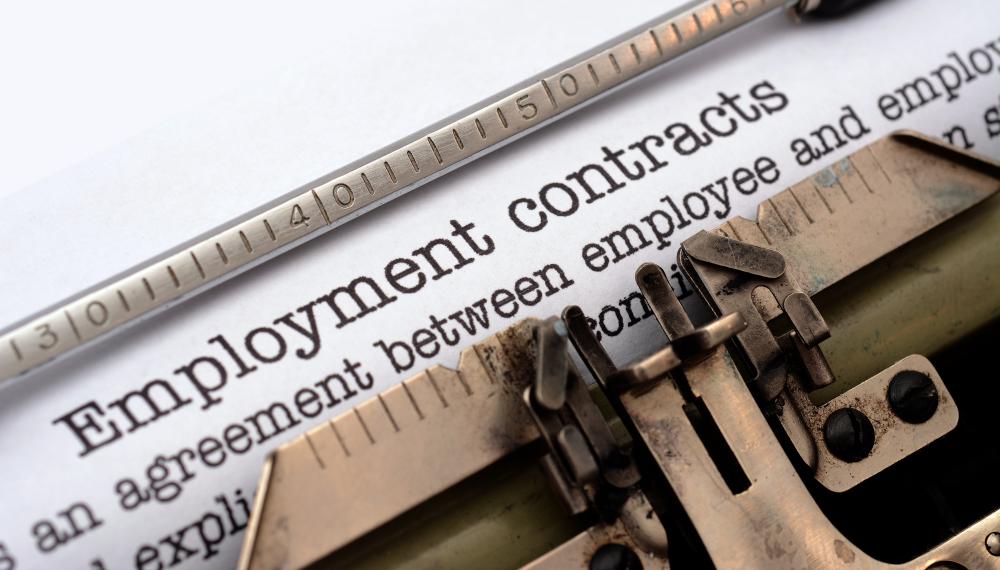At WiseGEEK, we're committed to delivering accurate, trustworthy information. Our expert-authored content is rigorously fact-checked and sourced from credible authorities. Discover how we uphold the highest standards in providing you with reliable knowledge.
What Is Retroactive Pay?
Retroactive pay is pay which an employee is owed for work which has already been completed. It is often made up in the form of a lump sum in which the difference between what the employee was paid and what the employee should have been paid is made over in a check. Sometimes an agreement may be reached in which the employer disburses small payments with each paycheck until the difference has been made up. There are a number of reasons why people might be entitled to retroactive pay.
The most common reason for this situation to occur is ongoing labor negotiations. While negotiations are underway, the employer continues to pay employees at the established rate. When the negotiations are over, they may include a clause that employees are entitled to retroactive pay, starting on a set date, because part of the agreement includes a wage increase. The employer is required to make up the difference as part of the overall enactment of the agreement.

It is also possible for an employer to offer this type of pay increase. This may be done to reward or retain employees by not only providing them with a raise, but recognizing their hard work in prior pay periods. It is important to note that, in most cases, employers cannot engage in a retroactive pay cut; if wages are to be cut, employees must be notified at the start of the pay period in which the cut takes effect so that they can decide whether to accept the cut or seek other work.

Retroactive pay can also occur when an employee identifies an error. An employee may realize that he or she is classified at the wrong grade, that math was done improperly, or that the employee was entitled to overtime and did not receive it. In these cases, the employee brings the disparity to the attention of the employer, and the employer is required to make it up. Usually people need to identify these situations within a certain time period or they will lose out on some of the pay to which they are entitled.
Employees are required to pay taxes on retroactive pay, and the pay will be reported as part of their overall wages for the given year. People should be aware that, because their withholdings may have been based on their lower income, they could end up owing money in taxes at the end of the year due to the change in pay.
AS FEATURED ON:
AS FEATURED ON:












Discussion Comments
2) Significant taxes may be withheld on large lump-sum payments. Some employers may agree to change your tax withholding for just that payment, some may not. Either way, it evens out after the end of the year when you file your taxes since the size of your refund (or amount owed) will change to make your total taxes (after refund/amount owed) the same, regardless of the amount withheld for taxes from your lump-sum payment.
3) Legally, an employer can offer you any benefits, or lack thereof, that they want.
5) You must be paid for your efforts within a reasonable amount of time. Different states have different rules, but it's usually within 35 to 45 days of providing services - something like that. If you have not been paid a promised wage timely and are unable to work it out with your employer, you would need to file an unpaid wage claim with your state's department of industrial relations or similar agency.
7) Probably not - if your employer came up with a retroactive payment plan after you ceased working for them, you were not promised that pay so they don't legally need to pay it to you.
I left my job after the retroactive pay time frame, and my employer chose not to pay due to my quitting. Didn't I earn that pay adjustment?
My union contract is settled and my employer has to pay us retro pay. When it went, the arbitration board didn't set a deadline on when they have to pay us. We were first told seven weeks after the contract settled we were to have our retro pay. Well that came and went and then we were told that it will be here on a Saturday and as of today, they told us that we might not be getting it then either. Is there anything that we can do?
I worked overtime and was told I would be paid. It took my boss over two years to pay me and all three months' overtime was paid in one lump sum so it all went on taxes. Can he do this?
I am a retired employee and was rehired by our school where I taught for thirty two years and from the date I was rehired, I've served for another five years.
I would like to know if it is right for the employer to exclude me from sick leave benefits, honorarium, thirteenth month pay, and recently the retroactive increase that they gave to all other employees below my age. Thank you for enlightening me.
I am getting retroactive pay for the second time this year from my employer. The mistake that caused the first retroactive pay to be needed was not corrected and I had to request the problem to be corrected a second time.
However, I noticed that my retroactive pay was taxed at about 40 percent the first time. And I'm pretty sure this will happen again this time. I just with there was more info as if we can recoup the over taxation on this pay at the end of the year on our income tax, or if there is a possible lower tax request possible. I've looked online for more possible options, but it looks like info on retroactive pay is slim to none online.
I used to work for a company that regularly missed required employee evaluation dates; if an employee was awarded a raise after being reviewed, the company had to pay retroactively to the point at which the review should have been held. I knew people who got *months* of retroactive pay because of the delay.
Post your comments